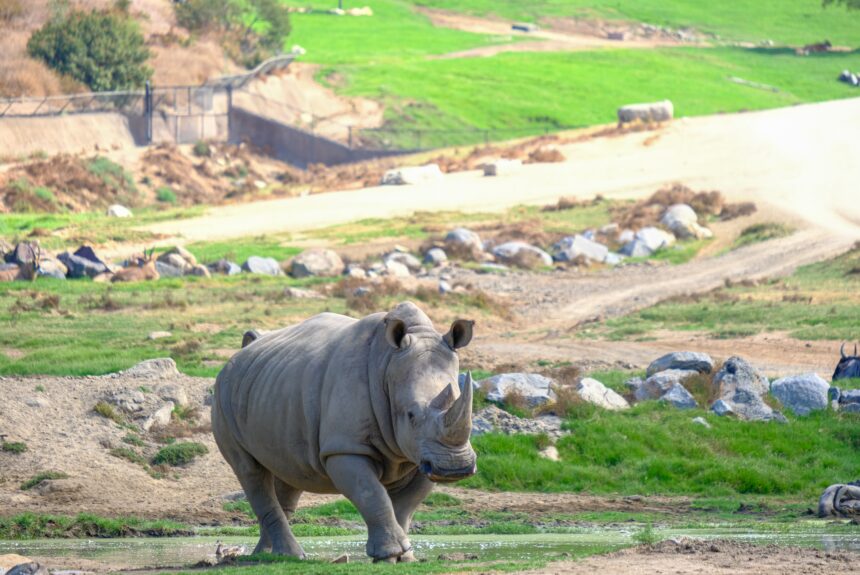Innovative thinking is unleashing solutions in not only clean energy but conservation as well. In Africa, the private sector is leveraging its resources to protect southern white rhinos, whose numbers have declined by nearly 12 percent in the last four years alone, from poaching while simultaneously producing a replicable model for saving endangered species across the globe.
>>>READ: New Report Analyzes How States Are Leading in Conservation Efforts
Platinum Rhino was the largest and most successful southern white rhino breeding operation in the world. But it was never intended to solely be a conservation effort, even though the operation had goals to rewild animals every year. Founder John Hume invested $150 million of his own money into starting the project in 2009 in the pursuit of a singular goal: Protecting white rhino populations by making horns from a live rhino worth more than that of a dead rhino.
Hume’s solution revolved around allowing ivory to be harvested from live rhinos, which can be done without hurting the animal, in a way to protect them from getting poached. The organization would then rewild 100 of the rhinos that it saved every year.
While Hume was never able to successfully lobby lawmakers to legalize this sort of trade, rhino horn has been banned from international trade since 1977, the organization was able to save nearly 2,000 southern white rhinos while breeding over 1,800 calves. In total, the organization owned 15 percent of the world’s southern white rhino population. Earlier this year Hume sold Platinum Rhino to African Parks, a South African conservation nonprofit. The nonprofit has announced its mission for this breeding operation: The rewilding of thousands of southern white rhinos over the next decade, one of the largest continent-wide rewilding efforts for any African species.
“The scale of this undertaking is simply enormous, and therefore daunting,” said Peter Fearnhead, CEO of African Parks. “However, it is equally one of the most exciting and globally strategic conservation opportunities. We will be working with multiple governments, funding partners and conservation organizations, who are committed to making this rewilding vision a reality.”
>>>READ: American Prairie Shows How the Free Market is Conserving our Natural Environment
African Parks will rewild every single one of the animals over the next decade, planning to shut down Platinum Rhino and its breeding operations for good at the end of that period.
Platinum Rhino was not the first or only organization to breed and rewild endangered species. Zoos across the globe breed animals to be reintroduced into the wild. While groups like Re:wild and conservation coalitions of stakeholders and scientists are also working to make rewilding happen. There are even maverick rewilders, taking it upon themselves to breed and rewild a number of species.
Platinum Rhino was unique in its market-based approach to conservation and rewilding, which allowed it to grow to the size that it did. Across the world, market forces are unleashing new methods to conserve wildlife and ecosystems. In Montana, American Prairie has leveraged private philanthropy to purchase ranch land, improve wildlife, and open it up to the public. Since 2005, the organization has brought over 750 bison back to Montana, which has been critical to improving the health of local ecosystems.
Market-based conservation may not be widely adopted, but it is not unique. Platinum Rhino and American Prairie are a testament to the power that incentives and private management provide in protecting endangered or threatened species.
Kelvey Vander Hart is a native Iowan, a member of the American Conservation Coalition, and a communications specialist at Reason Foundation.
The views and opinions expressed are those of the author’s and do not necessarily reflect the official policy or position of C3.
